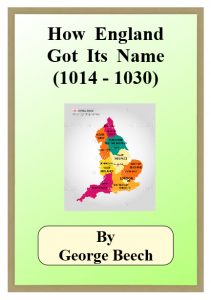The creation of a new ethnic identity of the English people was one of the most important developments of the later Anglo-Saxon period from the ninth to the eleventh centuries. Five centuries earlier, there had been no political or linguistic unity among the different peoples of German / Danish origin who had settled in the country and who spoke different dialects and were ruled by a handful of small tribal kingdoms. Then, from the reign of King Alfred onwards, Scandinavian invasions and the rise of dynasty of Wessex gradually led to the emergence of a single kingdom controlling most of the land and population, and to the belief that the English constituted a single community bound together by common descent, cultural tradition, language, church and loyalty to the king.
In the later stages of this development, around 1000 AD, a new name, Engla land, came to be attached to the kingdom of the English and it has lasted until the present day as one of the most famous and long-lived country names in European history.
Several historians from the later tenth to twelfth centuries called attention to this in their writings, so there has never been any question about the approximate date when it took place. The earliest of these was the late tenth century Latin chronicler Aethelweard of Wessex. After looking into the continental origins of the Angles, the Saxons and the Jutes, he notes that the land earlier called Britannia had taken its present name Anglia from one of the victorious invaders, the Angli: (Britannia is now called Anglia, taking the name of the victors).
